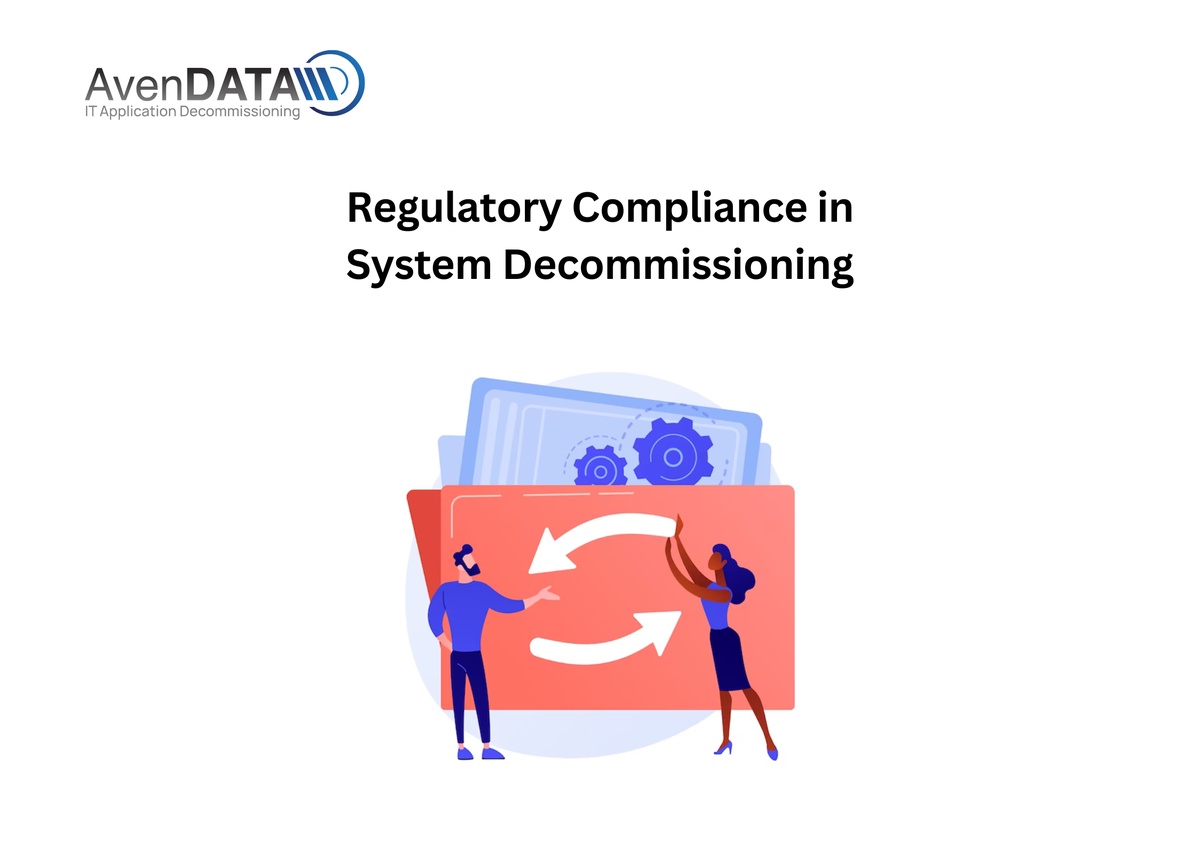Introduction: System decommissioning is a critical process that requires organizations to retire outdated or redundant systems. However, in addition to managing the technical aspects of decommissioning, organizations must also navigate the complex landscape of regulatory compliance. Compliance with industry regulations and data protection laws is crucial to ensure the security and integrity of sensitive information during the decommissioning process. This blog explores the importance of regulatory compliance in system decommissioning and provides insights on how organizations can effectively manage this aspect of the transition while maintaining data privacy and security.
Understanding Regulatory Compliance in System Decommissioning: Regulatory compliance refers to the adherence to specific laws, regulations, and guidelines set by governing bodies. In the context of system decommissioning, compliance ensures that organizations handle sensitive data appropriately and mitigate any potential risks:
a. Data Privacy Laws: Organizations must comply with data privacy laws such as the General Data Protection Regulation (GDPR), the California Consumer Privacy Act (CCPA), or industry-specific regulations. These regulations impose requirements for the secure handling, storage, and deletion of personal data during system decommissioning.
b. Data Retention Requirements: Certain industries have specific legal requirements for data retention, and organizations must comply with these regulations during the decommissioning process. It is essential to identify and preserve data that must be retained for legal or compliance purposes.
c. Industry-Specific Regulations: Organizations operating in regulated industries, such as healthcare or finance, must comply with industry-specific regulations. These regulations often impose stringent requirements for data security, privacy, and recordkeeping, which must be considered during system decommissioning.
Key Considerations for Regulatory Compliance in System Decommissioning: To ensure regulatory compliance during system decommissioning, organizations should consider the following key aspects:
a. Data Inventory and Classification: Conduct a thorough inventory of data within the systems targeted for decommissioning. Classify the data based on its sensitivity, legal requirements, and retention obligations. This classification helps organizations understand the regulatory implications and develop appropriate strategies for data handling and disposal.
b. Secure Data Destruction: Implement secure data destruction methods to ensure that sensitive information is irretrievable after system decommissioning. This may include physical destruction, secure wiping, or using data erasure software. Document and maintain records of the data destruction process for compliance purposes.
c. Data Transfer and Storage: If data needs to be transferred or stored during the decommissioning process, organizations must ensure that appropriate security measures are in place. This may include encryption, access controls, and secure transmission protocols to safeguard data integrity and confidentiality.
d. Audit Trails and Documentation: Maintain comprehensive audit trails and documentation throughout the decommissioning process. This includes documenting data disposal methods, data transfers, and any actions taken to ensure compliance. These records serve as evidence of compliance and can be invaluable during audits or regulatory inspections.
Collaboration with Legal and Compliance Teams: To effectively manage regulatory compliance in system decommissioning, organizations must collaborate closely with their legal and compliance teams:
a. Legal Expertise: Seek guidance from legal experts who specialize in data protection, privacy laws, and industry-specific regulations. These professionals can provide insights into compliance requirements, help interpret complex regulations, and ensure that the decommissioning process aligns with legal obligations.
b. Compliance Assessments: Conduct compliance assessments to identify any potential gaps or risks related to system decommissioning. These assessments should evaluate the organization’s current practices, policies, and procedures against relevant regulations, helping to identify areas that require attention or improvement.
c. Regular Training and Awareness: Provide regular training and awareness programs to employees involved in the system decommissioning process. This ensures that they are familiar with compliance requirements, understand their responsibilities, and follow best practices to maintain regulatory compliance.
Conclusion: Regulatory compliance is a crucial aspect of system decommissioning, ensuring the security and integrity of sensitive data throughout the transition process. By understanding and adhering to data privacy laws, data retention requirements, and industry-specific regulations, organizations can mitigate risks, maintain data privacy, and protect against potential legal consequences. Conducting a thorough data inventory, implementing secure data destruction methods, collaborating with legal and compliance teams, and maintaining comprehensive documentation are key steps towards achieving regulatory compliance in system decommissioning. Embrace regulatory compliance as an integral part of the process, and navigate the path to a secure and compliant transition.
#AvenDATA #systemdecommissioning #itdecommissioning #decommissioning #legacydata


No comments yet